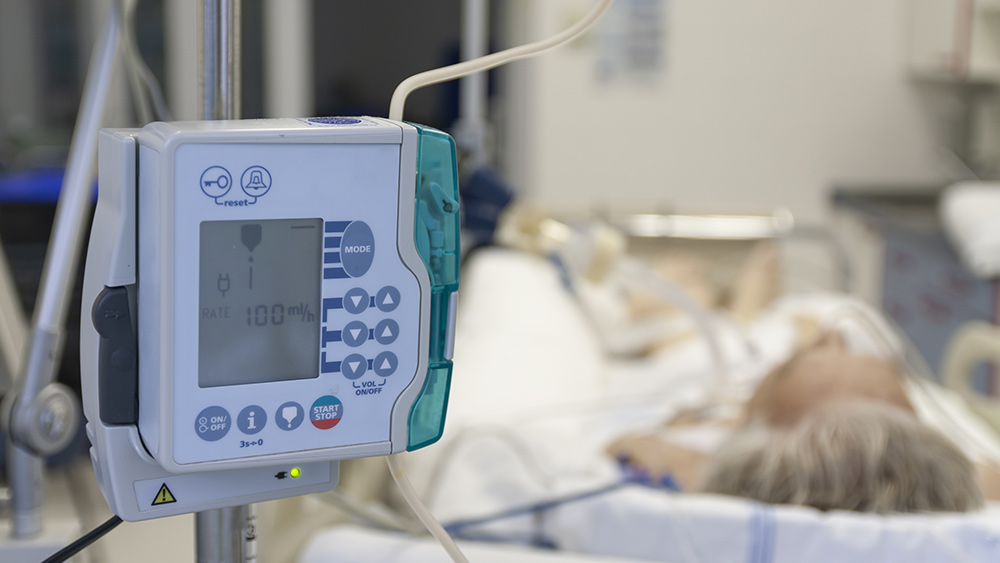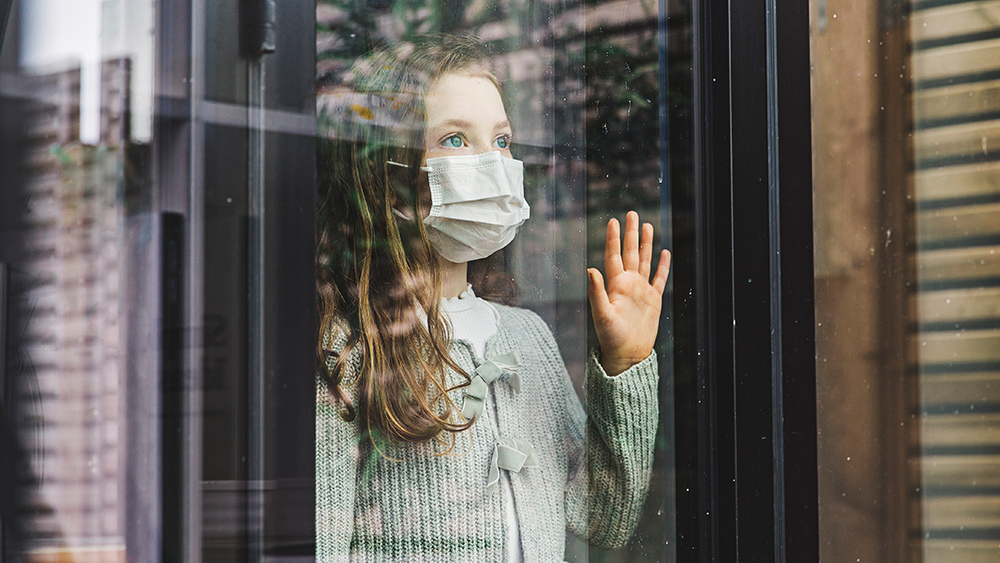Boost your immune system with vitamin D during the pandemic
05/20/2020 / By Divina Ramirez

The Wuhan coronavirus (COVID-19) continues to infect millions around the world. Since the first wave of the pandemic, experts have been hard-pressed to develop potential cures for the rapidly spreading disease.
That said, the online statistics portal Statista reported that as of May 19, 2020, over 1.9 million people of the 4.9 million confirmed global cases had recovered from the disease. This figure tells us that recovery from COVID-19 is possible even without a specialized drug or vaccine.
Vitamin D: Nature’s antiviral
A strong immune response is essential for the prevention of infection. Immune cells are your body’s first line of defense against harmful pathogens and disease-causing free radicals.
Given the pandemic, it’s important to pay close attention to your body. Studies suggest that eating foods rich in essential nutrients and beneficial plant compounds can help build immunity and improve overall health.
One such nutrient is vitamin D. Strictly speaking, vitamin D is a prohormone produced in the liver and kidneys. (Related: Vitamin D can STOP the development of liver problems, researchers find.)
When sunlight hits the skin, the kidneys convert a molecule called 7-dehydrocholesterol into cholecalciferol. This is the form of vitamin D often found in foods and supplements. A similar process occurs in the liver to produce calcidiol, a less potent form of vitamin D.
Vitamin D is considered an essential immune-boosting nutrient. According to a recent review published in The British Medical Journal, vitamin D combats certain viral and bacterial pathogens responsible for asthma, pneumonia and the flu. It’s worth noting that these conditions cause symptoms that mirror those of COVID-19.

Another recent investigation noted a strong correlation between vitamin D deficiency and COVID-19 mortality. A research team from Northwestern University in Illinois studied recent hospital data around the world and found that COVID-19 patients with low levels of vitamin D were more susceptible to severe or fatal complications related to the disease.
As of the time of this writing, the paper is awaiting peer review.
Foods rich in vitamin D
Eating a balanced diet that includes foods rich in vitamin D can help protect you from COVID-19 and its complications. Here are some nutritious sources of vitamin D:
Fish
Fish rich in omega-3 fatty acids like salmon, sardines and mackerel are also excellent sources of vitamin D. A 3 oz serving of mackerel provides an incredible 547 IU of vitamin D, while 3.5 oz of salmon also hold a considerable amount of vitamin D at 386 IU. Meanwhile, a can of sardines can have as much as 193 IU of vitamin D.
Beef liver
Grass-fed beef liver is one of the healthiest animal organs known to man. Each 3 oz serving of beef liver can have up to 42 IU of vitamin D. It is also rich in several essential nutrients like vitamin A, folate and iron. Together, these nutrients work to strengthen immune functions against disease.
Egg yolks
On average, an egg contains 41 IU of vitamin D and almost all of it can be found in the yolk. That said, vitamin D content might differ depending on the egg. For instance, pastured eggs, or eggs from free-range hens, can have four to six times more vitamin D than eggs from commercial farms.
Mushrooms
Like humans, mushrooms can produce vitamin D in response to sunlight. One cup of shiitake, portobello or button mushrooms can contain up to 40 IU of vitamin D. That said, mushrooms are perhaps the sole plant-based source of vitamin D. Experts recommend taking vitamin D supplements for people on vegan or vegetarian diets to avoid deficiencies.
Milk and cheese
Milk and cheese are natural sources of vitamin D, calcium, phosphorus and essential B complex vitamins. Each 8 oz cup of milk, whether whole or low-fat, can have as much as 100 IU of vitamin D. Certain varieties of cheese like Swiss and cheddar also contain at least 20 IU of vitamin D per 100 g serving.
Yogurt
Yogurt makes for a great vitamin-D rich snack. Each six-ounce serving provides 80 to 100 IU of vitamin D. Yogurt is also a rich source of probiotics, protein and potassium that protect the gut from inflammation and harmful pathogens. (Related: Probiotics and yogurt exhibit potential anti-schistosomal, hepatoprotective properties.)
Whole grain oats
Half a cup of whole grain oats can contain 54 to 136 IU of vitamin D. Like most whole grains, oats are also rich in other nutrients that enhance immune functions and overall health, such as fiber, iron, magnesium and B complex vitamins.
A fortified immune system gives you a fighting chance of recovering from COVID-19 should you contract the disease. To strengthen your immune system, eat more foods rich in vitamin D and other immune-boosting nutrients like vitamins A and C.
Learn more about the other health benefits of vitamin D at VitaminD.news.
Sources include:
Submit a correction >>
Tagged Under:
alternative medicine, coronavirus, disease treatments, food cures, food is medicine, functional food, natural cures, natural ingredients, natural medicine, nutrients, organics, prevention, remedies, supplements, vitamin D
This article may contain statements that reflect the opinion of the author





















